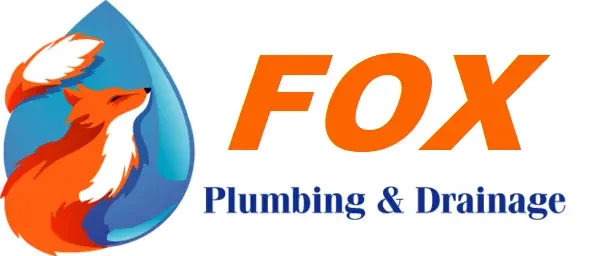Gas Leak FAQ – Melbourne’s Western Suburbs
Do plumbers fix gas leaks?
Yes — but not just any plumber. Only licensed plumbers who are also qualified gas fitters can legally work on gas systems in Victoria. At Fox Plumbing & Drainage, our team is fully licensed, insured, and authorised to locate, repair, and certify gas leaks.
We use professional-grade leak detection equipment and pressure testing methods to pinpoint even small leaks quickly. Once repairs are complete, we lodge all work with the Building and Plumbing Commission (BPC), ensuring it meets AS/NZS 5601 gas installation standards.
Never rely on a handyman or unlicensed worker for gas issues — it’s unsafe and can void your insurance.
Who is responsible for fixing a gas leak — me or my gas provider?
This depends on where the leak occurs:
Before the gas meter (street side) — that’s your gas supplier’s responsibility. Contact your provider or the emergency number on your gas bill.
After the gas meter (house side) — it becomes the homeowner’s responsibility. This includes pipes running to your hot water system, cooktop, and heater.
If you’re unsure, turn off the gas at the meter and call a qualified gas plumber. We’ll test and confirm exactly where the leak originates so you know who’s responsible.
What are the warning signs of a gas leak?
Common indicators include:
A strong rotten-egg smell (from the additive mercaptan).
Hissing or whistling sounds near gas appliances, meters, or pipe joints.
Dying vegetation or yellowing grass above buried gas lines.
Bubbles forming in puddles or damp soil.
Condensation or frost on gas fittings or pipes.
Unexplained high gas bills or fluctuating gas usage.
Feeling lightheaded, dizzy, or nauseous indoors.
If you notice even one of these signs, assume it’s a leak and act fast.
Is it safe to turn off the gas myself?
Yes — if you can do so safely. Locate your gas meter (usually at the front of your property) and turn the valve handle a quarter-turn so it’s across the pipe — that shuts off supply.
However, do not attempt to tighten or repair any fittings yourself. Sparks from tools or static electricity can ignite escaping gas. Once the valve is off, step back, ventilate the area, and call Fox Plumbing & Drainage for emergency response.
How often should gas lines be inspected?
Ideally, your home’s gas system should be checked annually. Routine inspections ensure:
All joints and fittings remain airtight
Meters and appliances are operating safely
Pressure levels are stable and compliant
There’s no corrosion or damage from weather or pests
Annual testing is especially important for older homes, rental properties, or after renovations or landscaping that may have disturbed underground pipes.
A licensed gas plumber can issue a BPC Compliance Certificate, confirming everything meets legal standards.
Can a gas leak make you sick?
Yes. Exposure to leaking gas can lead to carbon monoxide buildup and other health hazards. Symptoms include headaches, nausea, fatigue, dizziness, and confusion. In serious cases, gas exposure can cause loss of consciousness or even death.
If you feel unwell and suspect a gas leak:
Move everyone outside to fresh air immediately.
Do not re-enter the property until it’s been tested.
Call 000 if symptoms are severe.
Contact Fox Plumbing & Drainage once it’s safe — we’ll test, repair, and certify your gas system before you return.
Why do gas leaks happen more often in older homes?
Over time, gas fittings and copper lines can corrode, joints can loosen, and older gas meters lose sealing integrity. In Melbourne’s western suburbs, we often see leaks caused by age, ground movement, and thermal expansion.
If your home is more than 15–20 years old, book a professional gas safety check. Preventive maintenance is far cheaper — and safer — than emergency repairs.
Can tree roots damage gas lines like they do drains?
Not usually — but they can cause indirect damage. Large roots can shift soil, move pipes, or stress fittings, especially around older meters or buried copper sections. If you’re re-landscaping, always confirm where your underground gas line runs before digging.
Should I turn off electrical appliances if I smell gas?
No — don’t touch anything electrical, including lights or switches. Even a small spark can ignite gas. Instead, open doors and windows to ventilate, evacuate the area, and contact a gas plumber from outside the property.
What should I expect during a professional gas leak inspection?
At Fox Plumbing & Drainage, our inspection process includes:
Visual checks around the gas meter and appliances
Pressure testing the entire gas system
Locating leaks using a digital manometer and tracer gas
Repairing or replacing faulty fittings
Issuing a BPC compliance certificate once everything passes testing
The process usually takes 30–90 minutes, depending on the size of your system.
Does my insurance cover gas leak repairs?
It depends on your policy. Many home insurance providers cover accidental damage, but not wear and tear. Because gas leaks are safety-related, insurers often require proof that repairs were done by a licensed gas plumber and certified through the BPC.
Can I prevent gas leaks entirely?
You can’t eliminate risk 100%, but you can minimise it by:
Scheduling annual gas safety checks
Replacing old appliances and pipework
Avoiding DIY gas work
Keeping the area around your gas meter clear and dry
Calling a professional immediately if you notice smells, sounds, or dead vegetation near pipes
See more answers in our main Plumbing Blog page

